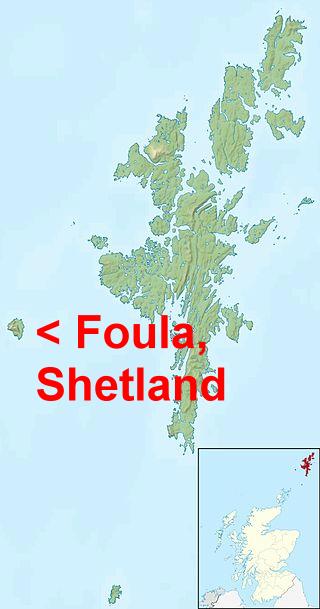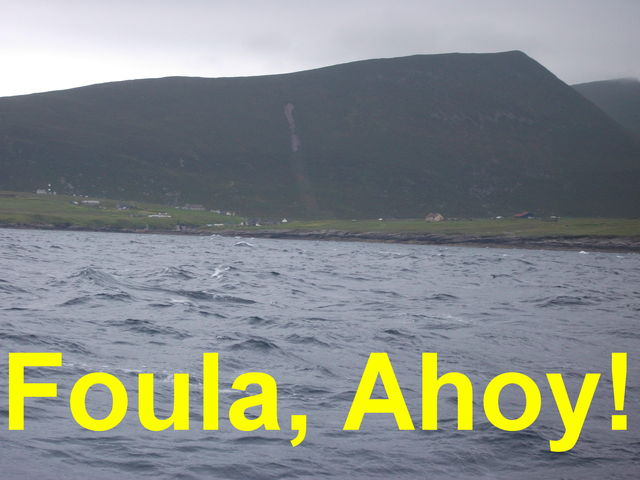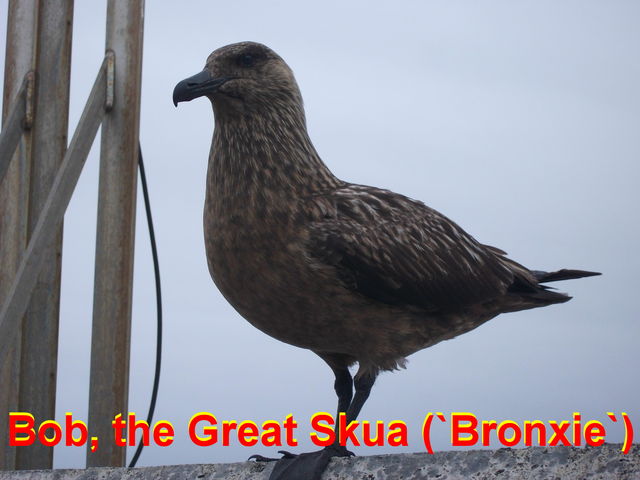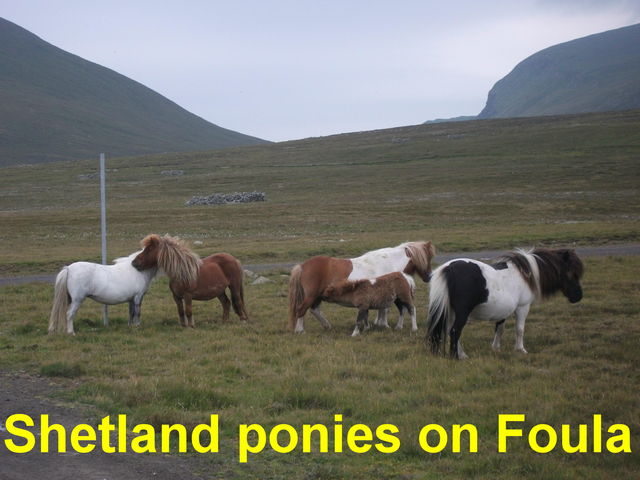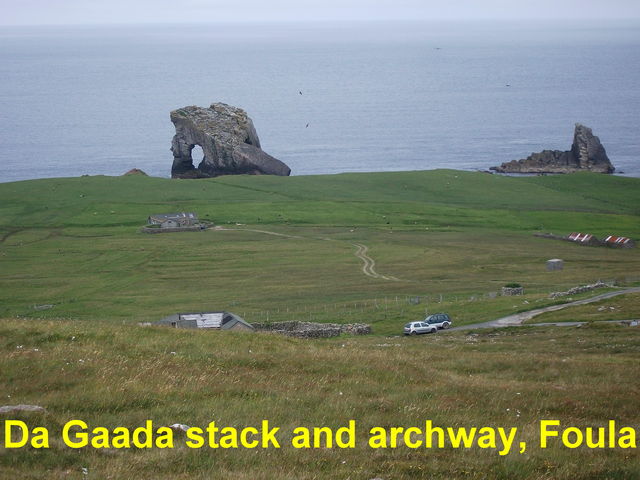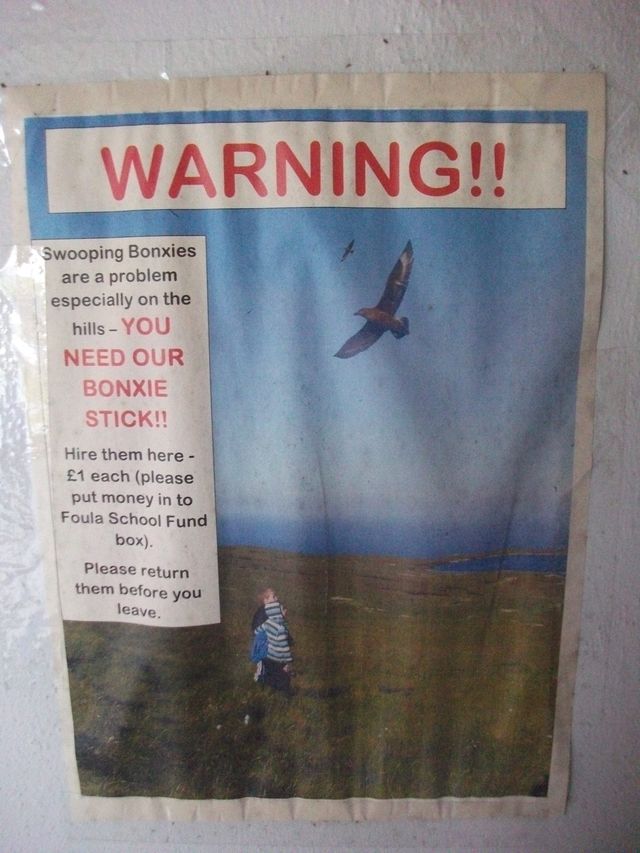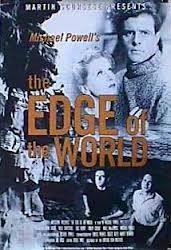Trip to the edge of the world
Paul O'Hanlon | 29.12.2014 20:53 | Ecology | Free Spaces | Health | London | World
The New Year is almost upon us and I wonder what 2015 will mean for myself and for the whole world. One place I will remember with great affection and significance from 2014 is the beautiful and mysterious island of Foula, the so-called `Edge of the World`. I was privileged to visit this far flung part of the world in the summer. I can remember my journey on the little 12-seater ferry through the choppy seas. There was I with my city habit of looking at my watch every few minutes as if to check for the next bus or train or tram or whatever but as Bryan the boatman and also island hotel owner said to me “What do you keep looking at your watch for? Time means nothing on Foula.”
I stayed for two nights on the island, the first was rather uneventful as I was too tired from my travels to do much but the second day saw me experience a huge upsurge of creative energy and when it was time to leave the island and go back to Mainland Shetland I seem to come away changed and feel that change to this day. It’s a unique place and I wholeheartedly recommend a visit there to folk from both Shetland, a place I love, and from beyond. Here is my story from Foula, the `edge of the world`.
Trip to Foula
The ancients called it Ultima Thule, the edge of the known world. There is nothing between this small, populated island and North America.
Foula is the most westerly of the Shetland archipelago lying some 20 miles off the mainland of Shetland and some 800 miles north of London and at 60 degrees north is on the same latitude as southern Greenland, Anchorage in Alaska, and St Petersburg, Russia. It was the setting for the famous 1937 film by Michael Powell `The Edge of The World` when it doubled for the island of Hirta in the St Kilda island group when filming permission was not granted there.
Unlike St Kilda whose inhabitants were voluntarily evacuated in 1930 there is a permanent resident population of some 34 souls including a school for the 6 schoolchildren of the island. There are no shops or pubs though there is a very small post office, a resident nurse, a community hall and a fire engine located near the air strip. Supplies are ferried or flown in, the boat crossing taking about 2 to 2½ hours while the plane from Tingwall airport just north of Lerwick takes 15 minutes.
I decided to come to Foula instead of taking the ferry from Lerwick to Kirkwall in the Orkneys. Kirkwall is a positive metropolis compared to the village of Ham in Foula with around 8,000 inhabitants – roughly the same size as Lerwick, Shetland or Stornoway on the Hebridean Island of Lewis. The boat on the Wednesday afternoon of July 9th from Lerwick to Kirkwall and Aberdeen was packed out with 350 passengers or pack–ed oot as the Shetlanders would say and with no cabins available. It’s not usually that busy even in summer and it was suggested that fog at Sumburgh Airport may have caused the cancellation of flights to the mainland, leading many folk to go by boat. The sea journey wasn’t too appealing - 5½ hours from Lerwick to Kirkwall might not be too bad but 14½ hours in a reclining seat from Lerwick to Aberdeen would be a tad uncomfortable.
I got the bus from Lerwick’s Viking bus station to the small town and port of Waas (Walls) some 24 miles and one hour distant on the west side of Mainland, Shetland’s largest island and stayed a night there to wait for the ferry to Foula on the Thursday. The boat usually runs 3 times a week though sometimes more depending on demand.
The ferry left a little later than the scheduled time and carried a dozen passengers and a crew of four. The seas were fairly calm with just a light swell and Kevin the kindly skipper informed me that the depth of the water was about 70 metres or 230 feet which lessened to about 30 metres or 100 feet as we approached Foula at a speed of around 8 knots. The water temperature was around 8 degrees Celsius roughly 30 degrees less than human body temperature and even a young, fit person would not last long in the frigid seas. The boat did toss and sway a little in the shallower waters nearing our destination but we arrived safely at the little ferry terminal at Ham.
Time means nothing on Foula they say and the inhabitants both human and animal are very amenable. A quayside crane lifted a crate packed with luggage and supplies while the passengers disembarked for their adventure to the edge of the world.
On landing I met Bob the Great Skua sea bird or `Bonxie` as Shetlanders call them. Bob has been adopted by Bryan the owner of the guest house on Foula. Bryan is a busy man as he also mans the ferry and maintains the roads. I was astonished at how close I could get to the big Skua and take his picture. Likewise Robbie the rabbit has no fear of humans and will allow you to get really close and pet him.
Of course there are many Shetland ponies, the cute and friendly little creatures who march from one grazing place to another in single file. You have to beware of the `Bonxies` though – in fact at Foula’s tiny airstrip you can hire a `Bonxie` stick for £1 to beat off the swooping Skuas who are surprisingly large and sometimes quite aggressive if they think you are going near their nest. A couple of them flew just over my head but didn’t make contact.
The sheep on Foula are the hardy native Shetland variety with multi-coloured fleece much in demand by hand spinners. Their fleece varies from moorit (brown) to fawn, grey creamy white and black. Foula is home to a unique kind of field mouse and an island kind of house-mouse though rats are absent. The world’s largest colony of Great Skua competes fiercely with the Arctic Skuas for breeding territories. Some of these birds migrate from as far as Siberia and America.
The waters off the island are home to Atlantic and Grey Seals as well as Killer Whales, Puffins, Minke Whales and Porpoises.
There aren’t any snakes or Scottish wildcats on the island though an occasional feral cat has been known. There are no foxes in Foula or indeed anywhere in Shetland. There are a few badgers though not many, there used to be many pigs on Foula but as of 2014 there are none. There are just a few goats and a couple of Shetland cows. Apart from humans the main inhabitants are sheep and ponies with a few sheepdogs.
Trees do not grow in the peaty soil though the island is said to have some delicious tasting berries.
The island’s population is remarkably stable at around 34 though swollen by occasional tourists. Whereas in a town or city that number of people would likely live in a row of maybe a dozen terraced or semi-detached houses or a small apartment block, Foula’s population lives along the roughly 3½ mile eastern side connected by a winding road of roughly 4½ miles with numerous passing points for the somewhat unexpected number of cars. The Western side of the island is rather difficult to get to and features terrifyingly high cliffs.
Crofting which is small scale farming is the main occupation with most crofts averaging around 2-2.5 hectares or 5-6 acres. The total area of the island is around 12.65 km² or 4.8 square miles and since the turn of the 20th century it has been owned by the wealthy Holbourn family.
The Sneug at 418 metres (1,371 ft.) is the highest point of the island and rivals Hirta’s Conachair 430 metres (1,410 ft.) as the highest cliff in the British Isles.
The climate is relatively mild considering how far north it is, while in January St Petersburg and Anchorage freeze in many degrees of frost Foula’s winters generally mean wind and rain rather than snow and ice. Summers are cool with July maximums in the mid-teens Celsius with very long daylight hours – in fact almost 24 hour daylight in June – the so-called `Simmer Dim` when the sun only dips below the horizon for a few hours between about midnight and 3 am.
A famous ship once ran aground off Foula in September 1914 during the First World War. It was the sister ship of the RMS Titanic – the equally opulent RMS Oceanic. Built as a luxury liner for White Star it was pressed in to wartime service.
She had sailed on her maiden voyage on 6 September 1899 and was the largest ship in the world until 1901.
At the outbreak of World War I in 1914 she was commissioned into Royal Navy service on 8 August 1914, as an armed merchant cruiser.
On 25 August 1914, the newly designated HMS Oceanic departed Southampton to patrol the waters from the North Scottish mainland to the Faroes, in particular around Shetland.
Due to a navigational error the ship was on the wrong side of the Isle of Foula and the boat ran directly onto the notorious Shaalds reefs on the morning of 8 September 1914. She was wrecked in a flat calm and clear weather. She was the first Allied passenger ship to be lost in the war.
The incident involved no loss of life but what was or would have been a major news story was covered up due to wartime censorship. Thus the name of the Oceanic is generally unknown. The wreck of the ship lay in shallow waters for many years and was not fully salvaged until 1979.
Charles Lightoller who was the most senior officer to survive the Titanic disaster was the first officer on the Oceanic when history nearly repeated itself.
I stayed on Foula for two nights and did a fair amount of walking though passing on the temptation to climb the high hills whatever the view rewarded.
On my coming back on the Saturday morning I watched the remote island gradually disappear wondering if I would return. I have an idea that several of the other passengers will not be revisiting after they were very sick during what was a very turbulent return journey with the wind and tide making the small vessel bob like a cork.
Foula is an awkward place to get to and may not suit everyone. If you like shopping malls, multiplex cinemas and casinos it’s probably not for you. It has its own unique charm though and the folk settled there have no intention of abandoning their island home as the St Kildans did some 84 years ago.
Paul O'Hanlon
 e-mail:
o_hanlon@hotmail.com
e-mail:
o_hanlon@hotmail.com

